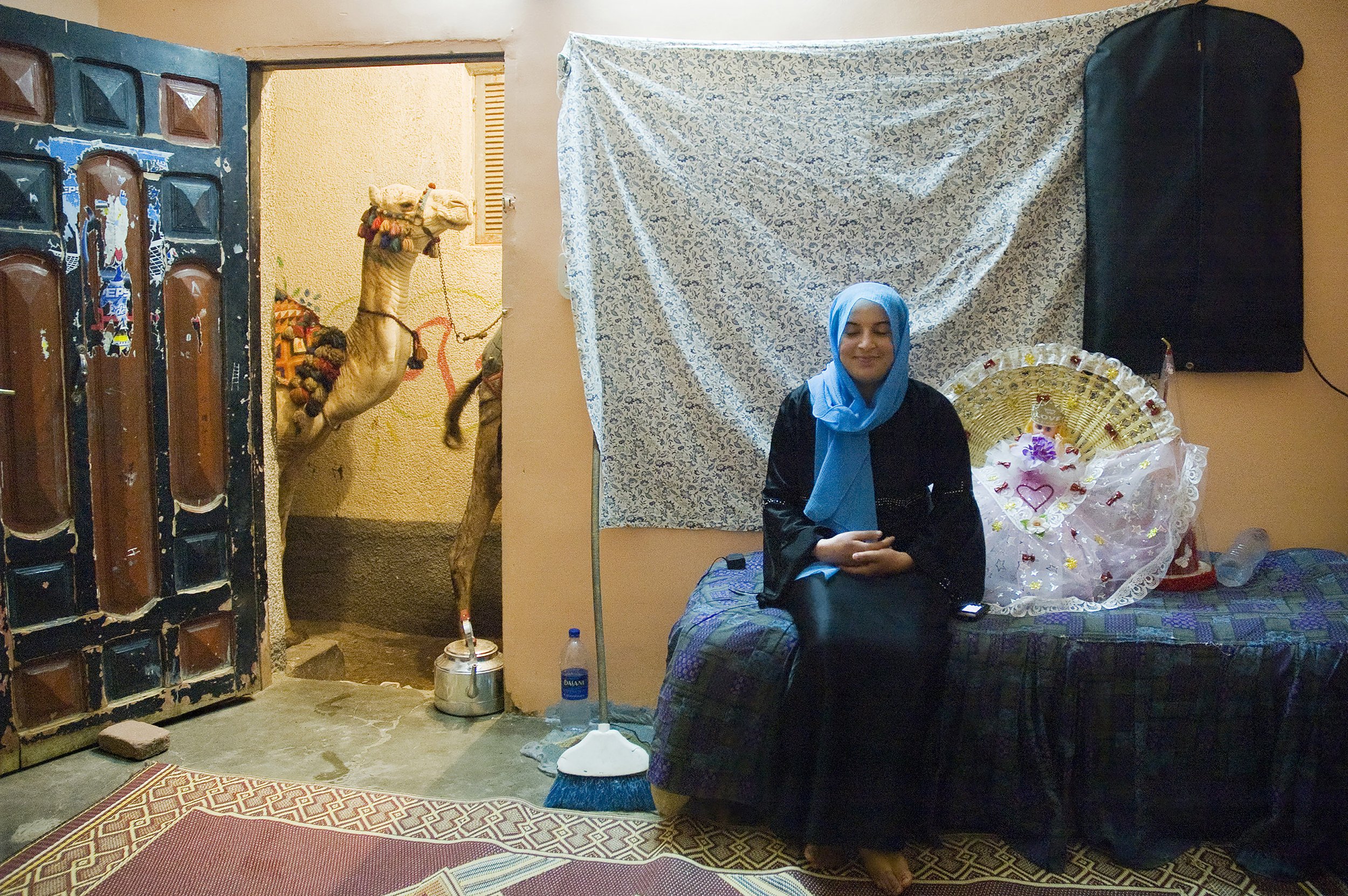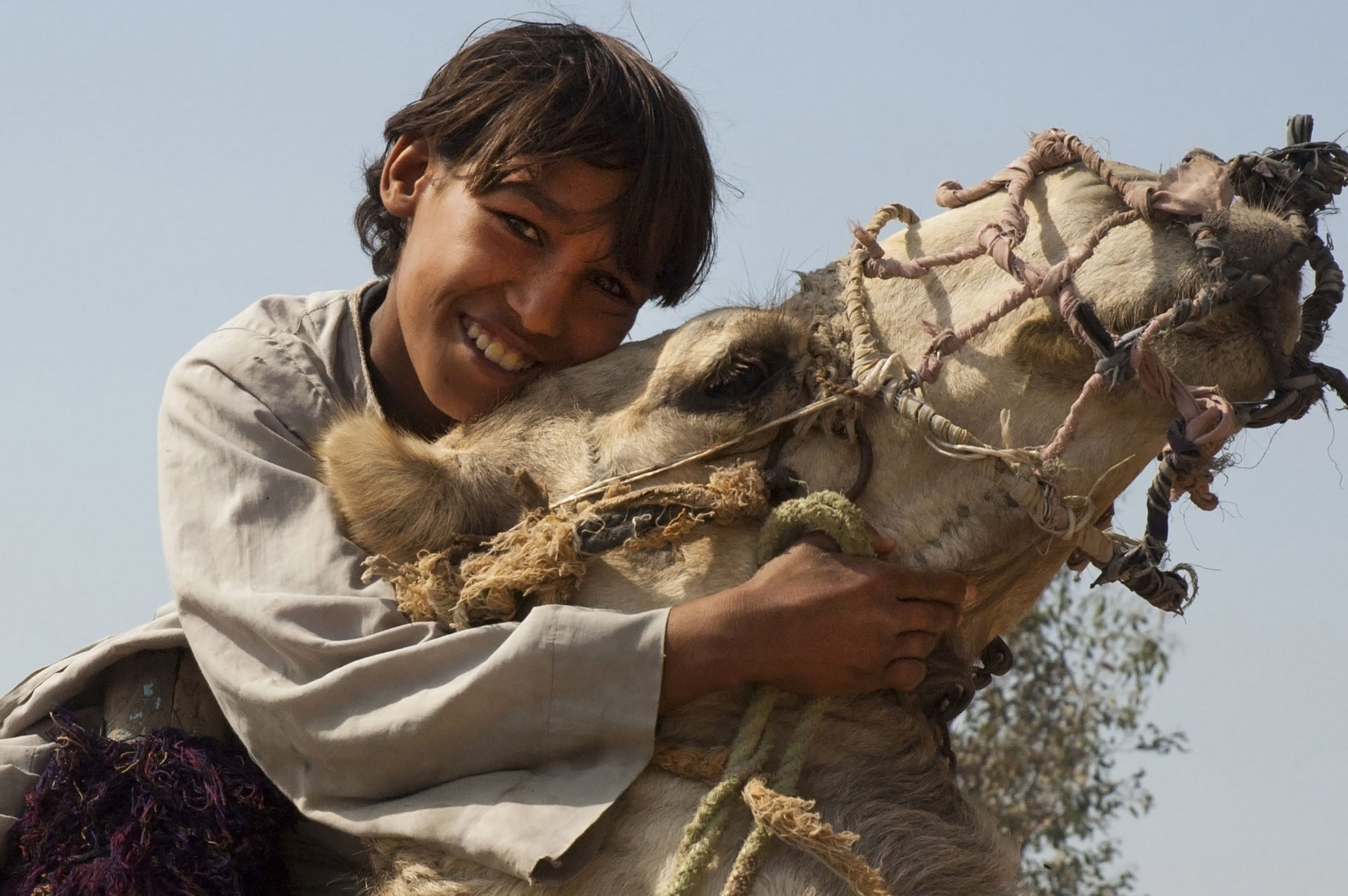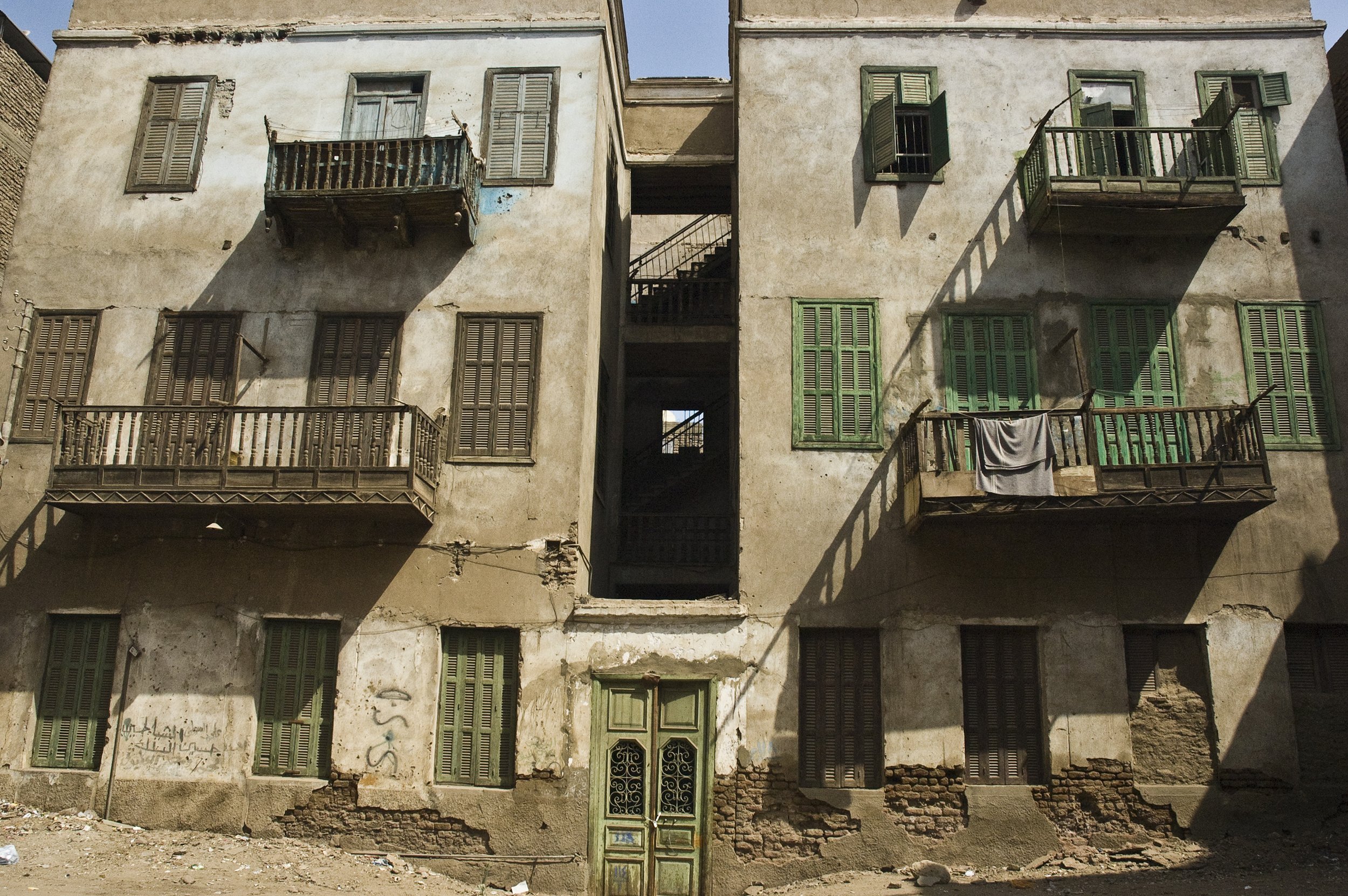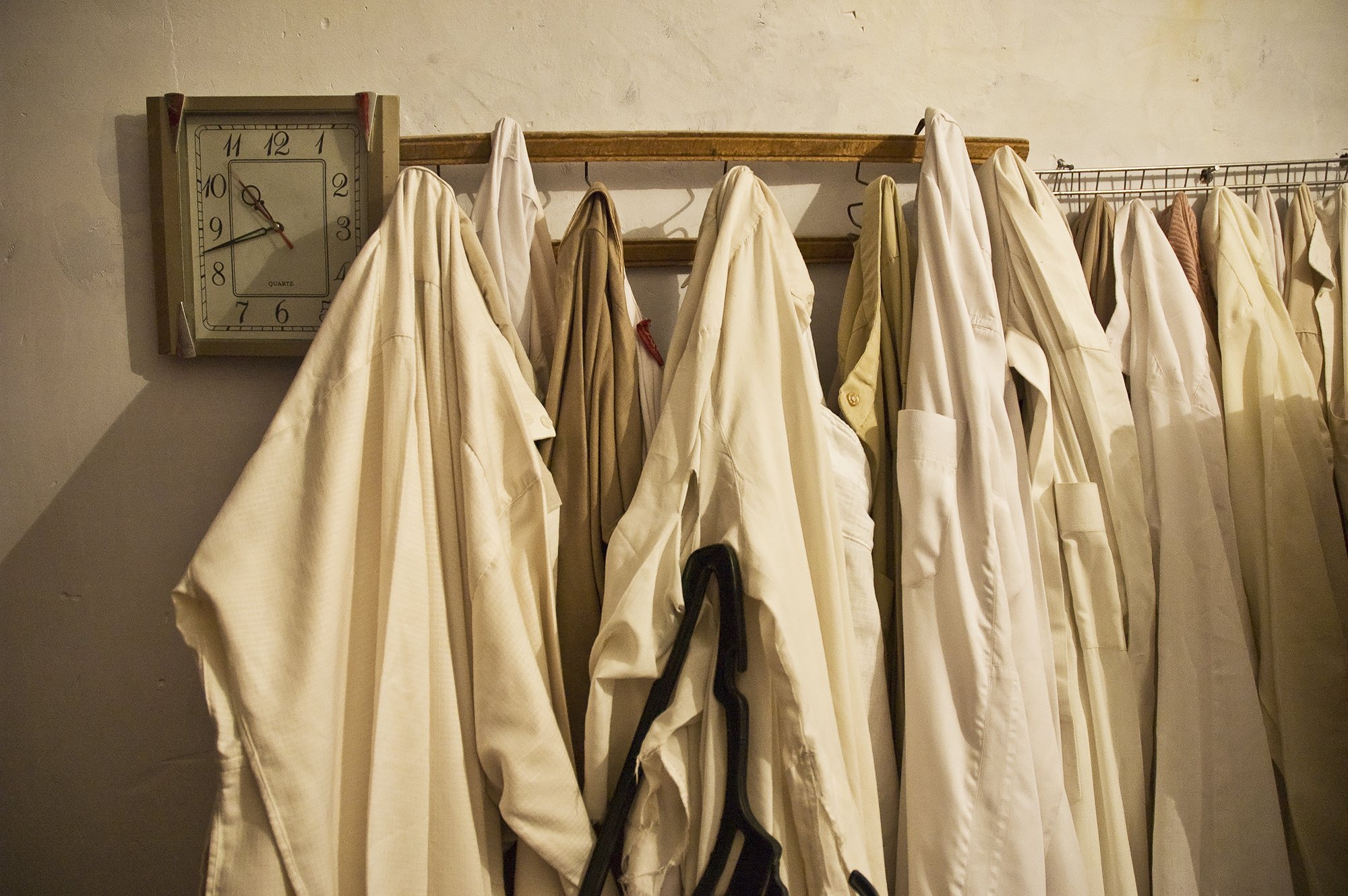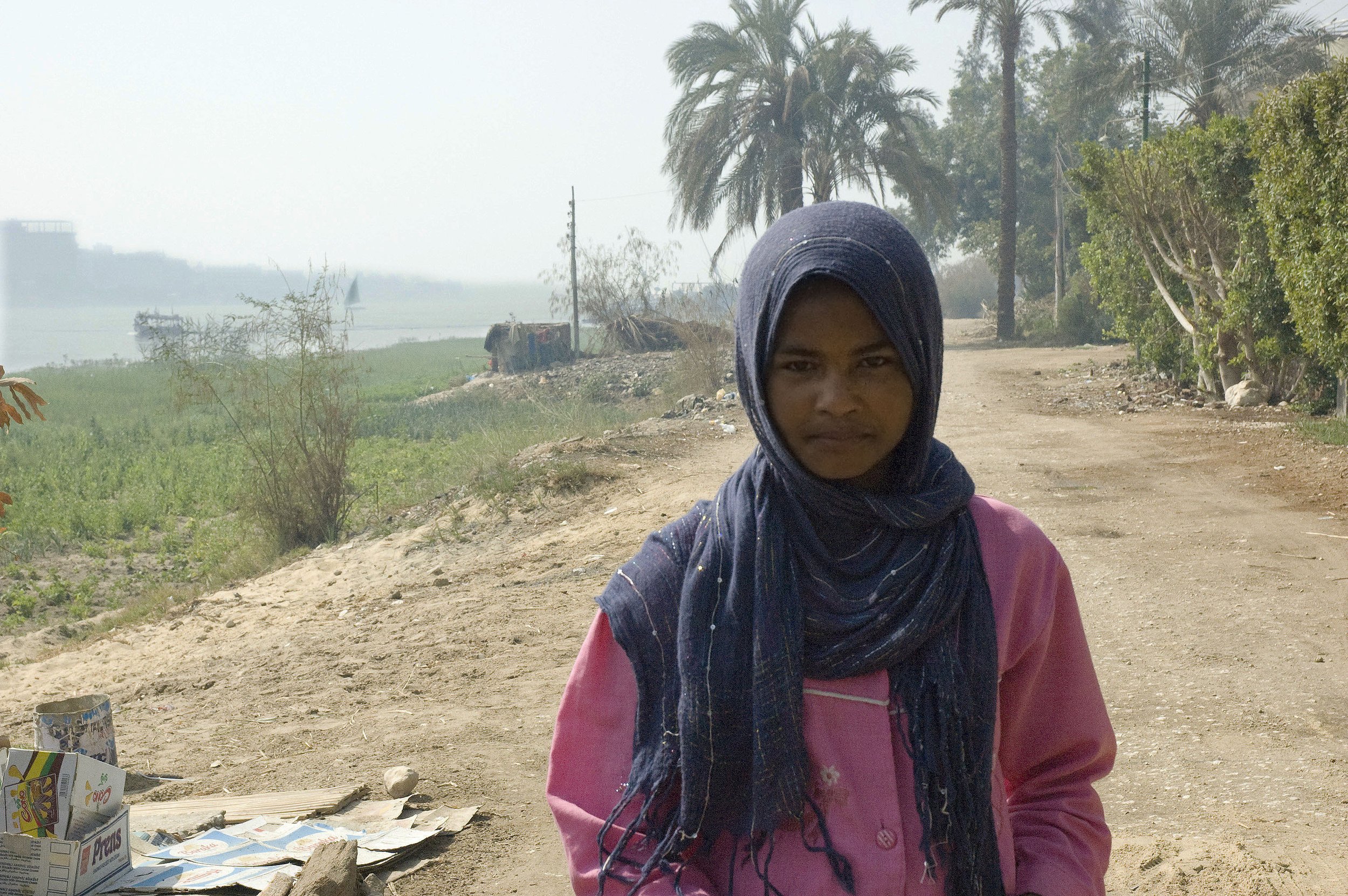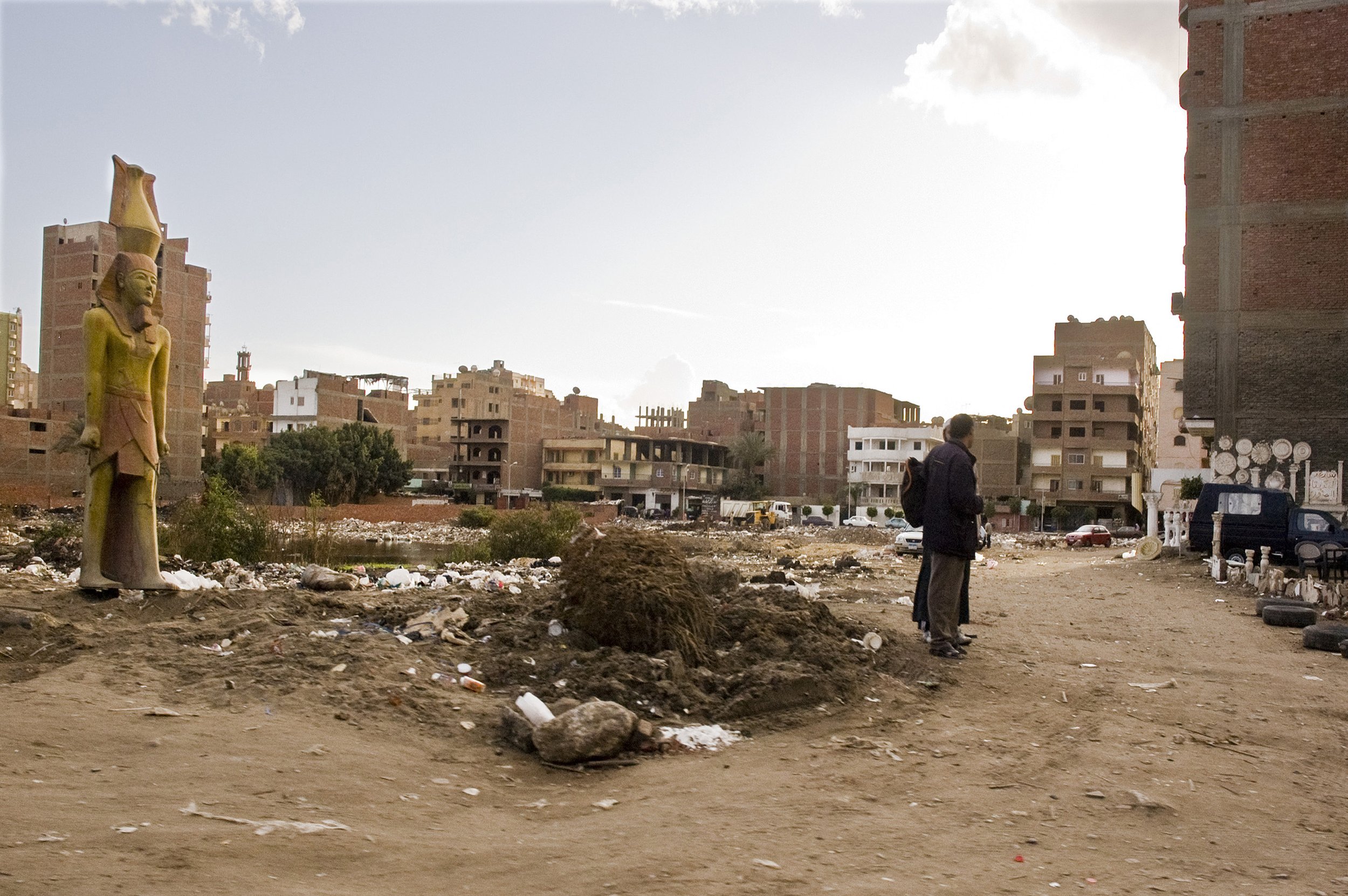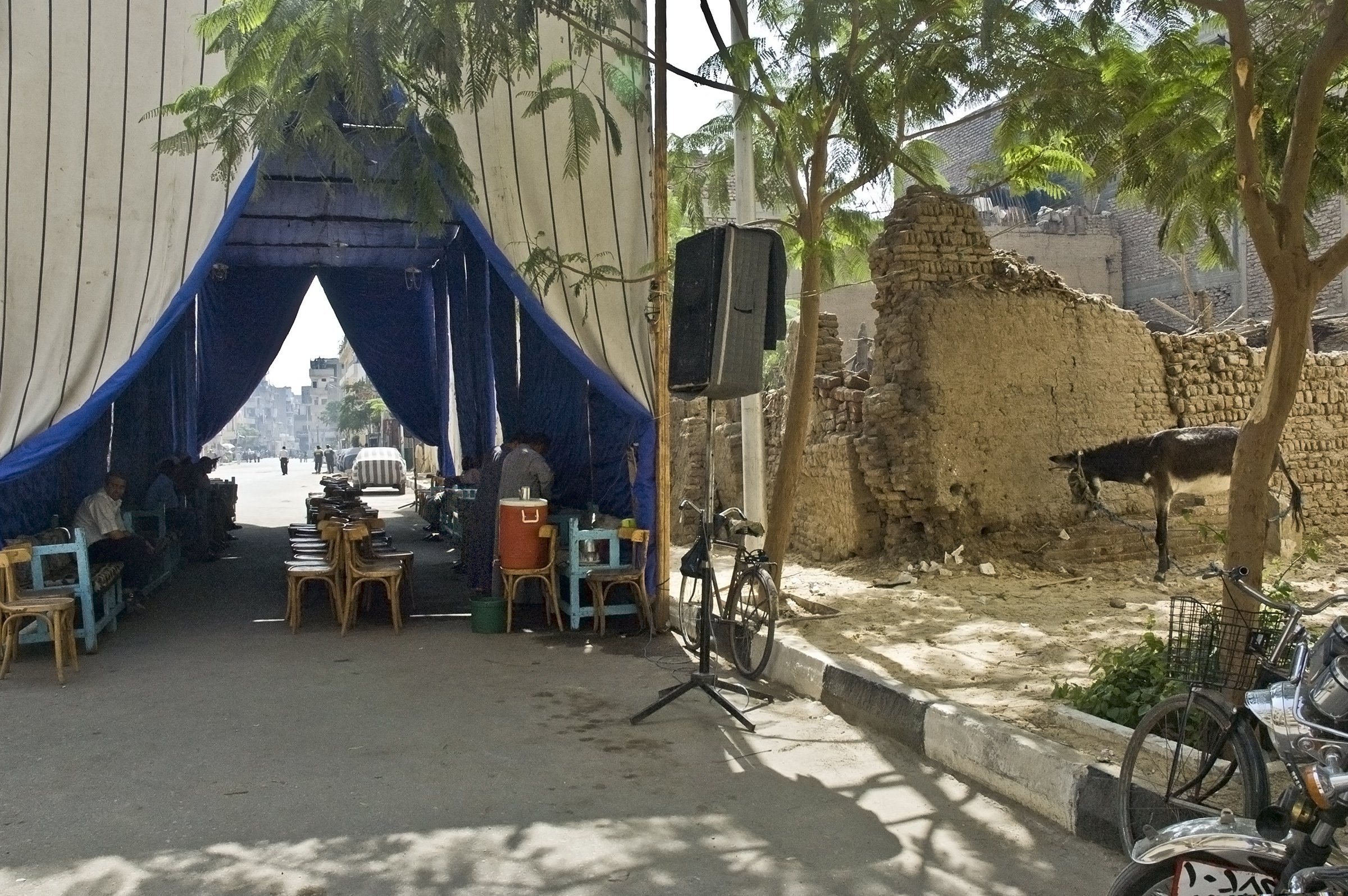Egypt Everyday
Egypt the place is filled with wonders seen nowhere else on earth. A true starting point of civilization. Egypt gives the feel of going back in time, like being in one of those tapestries filled with palm trees and turbans. But it also is modern, so to be a visitor, I am left standing unsure of where I am in time and space. Egypt is a place that carries on in the shadow of its ancient majesty. Here shows a little of the lives of people now and how a society carries forward.
Kitchen Shrine - On the Nile in Giza, Egypt
Mohammed’s Niece — Giza, Egypt. Mohammed’s niece is the embodiment of quiet kindness, innocence and pride. She rarely spoke to us, but wasn’t timid, she was curious and gracious. The camel ride included having tea while watching the sunset over the Great Pyramids. The three of us on our surly six-foot chariots navigated the chaotic Giza traffic. When we arrived at the dunes of the pyramids, the sky turned black. Lightning struck at the ground. Hail pelted us. It was a storm of biblical proportions. The camels were unfazed and Mohammed was delighted; a twenty-dollar bill had blown onto his boot. Soaked through and nowhere to take cover, Mohammed said he lived close by. We all piled into his apartment. In the hall, he didn’t bother to take the saddles off. As we dried off, Mohammed’s niece nodded and tried out her English. His wife made us tea. We drank and watched his family’s smiles.
At the Spice Market — Giza, Egypt. The elder buyer holds out his graceful hands almost as if he is receiving alms. He makes a simple transaction feel sacred, the young vendor oblivious of his bestowal. They are the magic of Egypt that is beauty in the mundane. Spices are an intrinsic part of the Egyptian heritage and indeed a part of human social history. Early artifacts include spices, found as treasures in the Great Pyramids, they are also a part of so many cultures from the Mayans to ancient Indonesia. Spice is still so much of what makes up the human experience. This stall composed mostly of fresh spices, not packaged or sealed in plastic, are important to each person who uses them, to tell their story and communicate through taste. This image can be found in tapestries woven hundreds of years ago as the cultural connection to spice relives itself over and over again.
Khaled And His Camel — Aswan, Egypt. We met walking along a dirt road on the outskirts of Aswan. I only got to spend a short time with Khaled, but his warmth, self-confidence and interest in the world was like he was a close friend. That was his humanity. Khaled offers camel rides. This is one way his family makes a living. When I take his photograph, he reaches to hug the camel and does not want the photo taken without her. His relationship to the camel transcends money, they are partners and friends. Their bond is based on survival and shows how love can grow from the challenges we face on this earth.
Salat — Cairo, Egypt. Mosque of Amr ibn al-As, considered the oldest mosque in Africa. They are devout Muslim men making a connection to their faith, each other, and as they chant the same words to Allah, they connect with all others uttering the same words around the world. To them they are creating a spirit of camaraderie. Amr ibn al-As, one of the largest mosques in the world, is ancient dating back to 642 AD. And all that time people have come to pray and honor the Muslim religion. Despite its size, it is not a grandiose place, and people flow in and out from the busy street. As the call to prayer sounds over the loud speaker, the men gather together to pray. They are reaching out to their god and in doing so feel they are uniting all humanity.
Introducing His Wife — Cairo, Egypt. He was the nephew of a friend of a person who worked by the Great Pyramids in Giza. Amir had been helpful to us. We met on a highway leading out of the city. Amir and his wife had been talking quietly when we came together. He was so excited to introduce his wife that he giggled as he said her name. Coming from a non-Muslim country, I was not used to interacting with someone in a Niqab. It was amazing to me how little I needed to see her face, to get a sense of her. Her eyes had the broadest smile. Her kindness was apparent.
Train Station Butcher Shop — Cairo, Egypt. I didn’t even get off the train, but there they were telling their story, shouting it out like a street side vendor. They are making their living right there on the train landing, working hard and doing good trade. Raw meat, cooked meat, all sitting out there in the smog of Cairo. Get off the train and they have what you need – Kofta Kebabs, Fuul, or a whole leg to stew. They can provide, they can give you a good deal. They will give some a beautiful smile and a joke with the food, others they will send on their way. In that brief moment, I saw them be tough and shrewd and simultaneously generous and compassionate.
On the Road to the Valley of the Kings — Luxor, Egypt.
Pharaohs — Cairo, Egypt. Standing among the garbage and street art, these men stand unfazed and ready to take on the day. To me, they are so much of what I experienced in my time in Egypt. The men stand unconscious that they are parallel to the statute of the Pharaoh. But like so many in Egypt there is a deep connection to history that pervades everyday life. And despite Egypt’s struggles, of buildings only half built, children with no shoes, and political chaos, there is a dignity in those on the street, as if they could be descendants of the pharaohs.
Nubia, Egypt
Truck Stop — Sahara Desert, Egypt. The people at the table are truck drivers in Egypt, taking a break in the middle of the Sahara Desert at a truck stop that offers food, hookah, and camaraderie. This truck stop is in the midst of a vast expanse of desert. An outpost of respite to all traveling through, on the outside it almost blends in with the surrounding environment, but inside, with its packaged snacks and shiny hookahs, it glows like treasure. Truckers take on the look of sages. The austerity of the desert brings out the beauty of the everyday person. The people of Egypt manage to make the ordinary – spectacular.
Wake at the Funeral - Cairo, Egypt
His Laundry — Aswan, Egypt. They are the women and children of the family. Evidence of a man in the household hangs drying in the sun. This image tells the story of people all over the world. These women stay in the shadows with their children waiting for the man’s clothes to dry. His is the only laundry they have done. Symbolically, his laundry is above them, as is the poster of a man’s face.
Nubian Kitchen


